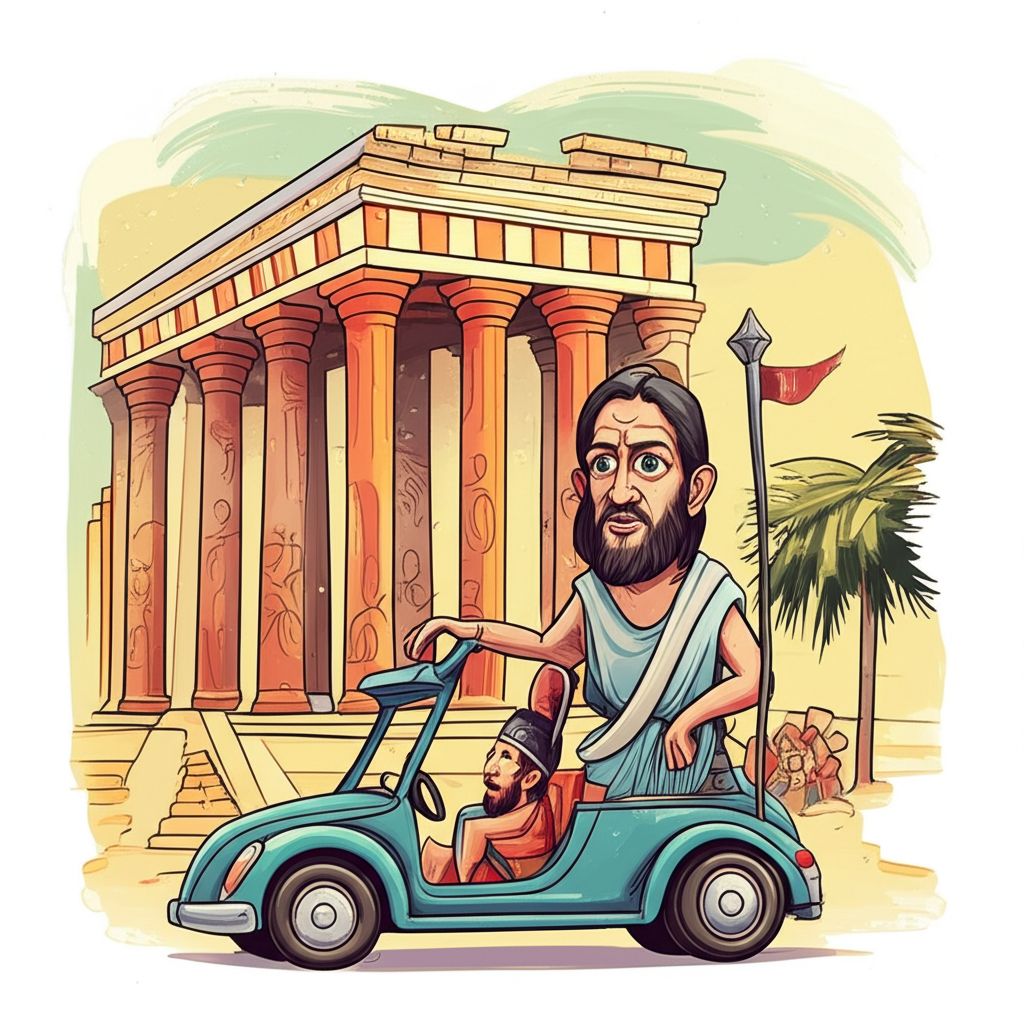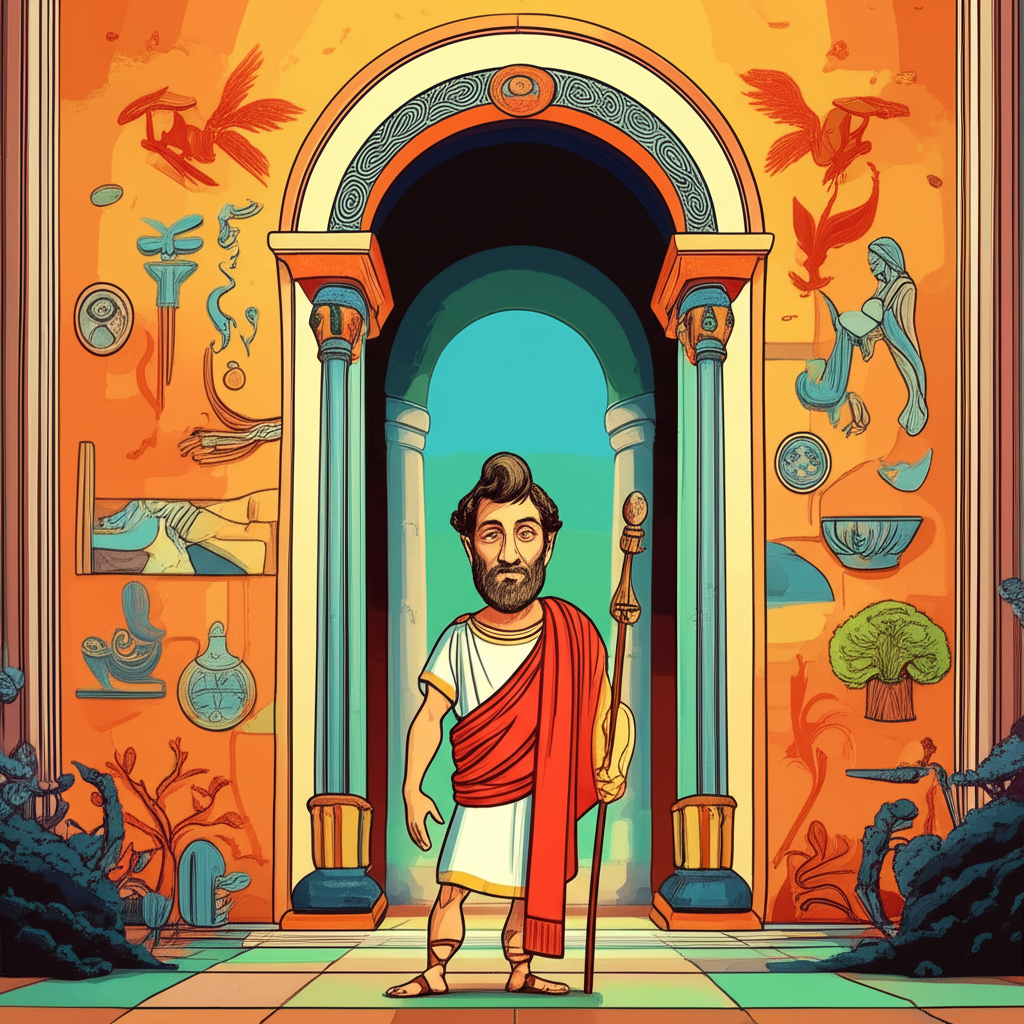Introduction
The tale of Heracles, known to the Romans as Hercules, is a cornerstone of Greek mythology, a rich collection of stories passed down through generations of ancient Greeks. These narratives, brimming with gods, monsters, and heroic feats, served not only as entertainment but also as a means of understanding the world, its origins, and the complexities of human nature. It is important to recognize that these are traditional stories, told by the ancient Greeks, and are part of their cultural heritage. They are not meant to be taken as historical fact or divine truth.
Origins and Cultural Background
The myths of Heracles, and indeed the entirety of Greek mythology, flourished during the Archaic and Classical periods of ancient Greece (roughly 800 BCE to 323 BCE). This was a time of burgeoning city-states, philosophical inquiry, artistic innovation, and constant warfare. The Greeks lived in a world where the divine was believed to be deeply intertwined with the mortal realm. Gods and goddesses were thought to intervene directly in human affairs, influencing everything from the weather to the outcome of battles.
The natural world was often personified, with rivers, mountains, and even the sea possessing their own spirits or deities. Fate, often personified by the Moirai (the Fates), was a powerful force that even the gods could not always overcome. The concepts of honor, glory, and piety were central to Greek culture, and heroes like Heracles embodied these values, albeit often in complicated and flawed ways. The myths served as moral lessons, cautionary tales, and explanations for natural phenomena, all within a polytheistic framework.
Character / Creature Description: Heracles
Heracles, the son of Zeus, king of the gods, and Alcmene, a mortal woman, was the epitome of the Greek hero. He possessed superhuman strength, courage, and resilience, making him a formidable warrior. However, he was also prone to fits of rage and susceptible to manipulation by both gods and mortals. He is often depicted with a lion skin, a trophy from his first labor, and a club, his weapon of choice.
Symbolically, Heracles represents the struggle between mortal limitations and divine potential. His labors, imposed upon him as penance for a terrible act he committed in a fit of madness, symbolize the challenges and hardships that individuals face in life. His strength represents the power to overcome adversity, while his flaws highlight the complexities of human nature. The lion skin is symbolic of courage and victory over primal forces, and the club represents his brute strength and determination.
Main Story / Narrative Retelling: Aftermath of Olympus
The air in Olympus crackled with a strange energy, a disquieting silence following Heracles’ ascension. The gods, accustomed to the boisterous feasts and endless squabbles, found themselves observing the newest member of their ranks with a mixture of awe and apprehension. Heracles, no longer weighed down by mortal constraints, felt a profound shift within him. The pain and exhaustion of his twelve labors, the weight of his past deeds, seemed to recede, replaced by a sense of immense power and responsibility.
He found himself seated beside Hebe, the goddess of youth, his new bride, a reward for his heroic achievements. The nectar of immortality flowed freely, but Heracles found little joy in the endless revelry. He missed the feel of the earth beneath his feet, the camaraderie of mortal warriors, and even the challenges that had defined his life.
Zeus, ever watchful, observed his son’s unease. "You have earned your place among us, Heracles," he boomed, his voice echoing through the halls of Olympus. "But your journey does not end here. As a god, you have a new purpose."
Heracles, though grateful for his deification, felt a pang of longing for the mortal world. He had left behind a legacy of heroism and sacrifice, but also a trail of destruction and regret. He yearned to make amends, to use his newfound power to help those still struggling in the world he had left behind.
He approached Zeus, bowing respectfully. "Father, I am grateful for your generosity. But I cannot simply feast and celebrate while mortals suffer. I wish to use my power to protect them, to guide them, to ease their burdens."
Zeus, though often capricious, recognized the sincerity in his son’s voice. He granted Heracles permission to intervene in mortal affairs, but with a strict condition: he must only act when called upon, and he must not interfere with the natural course of events.
And so, Heracles began his new labors, not as penance, but as a guardian. He descended from Olympus, not as a conqueror, but as a protector. He answered the prayers of the desperate, the cries of the wronged, and the pleas of the helpless. He aided farmers whose crops were ravaged by storms, defended villages from marauding bandits, and healed the sick and wounded.
He never forgot the lessons he had learned during his mortal life. He remembered the pain of loss, the sting of betrayal, and the burden of guilt. He used these memories to guide his actions, to ensure that his interventions were just and compassionate. He became a symbol of hope and resilience, a reminder that even the most flawed individuals could achieve greatness and offer solace to those in need. His legend continued, whispered around campfires and sung by bards, a testament to the enduring power of heroism, even in the realm of the gods.
Symbolism and Meaning
The aftermath of Heracles’ ascension to Olympus represents a transition from the mortal realm to the divine. It explores the idea that even after achieving the ultimate reward, the desire to serve and protect remains a powerful force. The story may have represented to the ancient Greeks the concept of divine responsibility, the idea that power comes with a duty to use it for good. It also highlights the enduring human need for purpose and meaning, even in a world of eternal bliss. Heracles’ continued involvement in mortal affairs reflects the belief that the gods were not distant and indifferent, but rather actively engaged in the lives of humans, offering guidance and protection.
Modern Perspective
The myth of Heracles continues to resonate in modern culture, appearing in countless books, movies, and video games. He is often portrayed as a symbol of strength, courage, and determination, but also as a flawed and complex character. In literature, he is often used as a metaphor for overcoming adversity and achieving personal growth. In movies and video games, he is frequently depicted as a powerful warrior, battling monsters and villains. Cultural studies often analyze the Heracles myth for its insights into ancient Greek values, social structures, and religious beliefs. The various interpretations highlight the enduring power of mythology to inspire, entertain, and provide a framework for understanding the human condition.
Conclusion
The tale of Heracles, a cherished story from ancient Greece, offers a glimpse into the imagination and beliefs of a bygone era. These narratives served as both entertainment and a means of understanding the world. It is important to remember that these are cultural stories, not religious doctrines.
As Muslims, we recognize that only Allah is the true Creator and Sustainer of the universe. He is the one and only God, and we worship Him alone. While we appreciate the rich cultural heritage of stories like that of Heracles, we understand that they are products of human imagination and do not reflect divine truth. They are part of a cultural narrative and serve as a reminder of the power of storytelling and human creativity. These myths provide valuable insights into the history, values, and beliefs of the ancient Greeks, and they continue to inspire and entertain us today.




